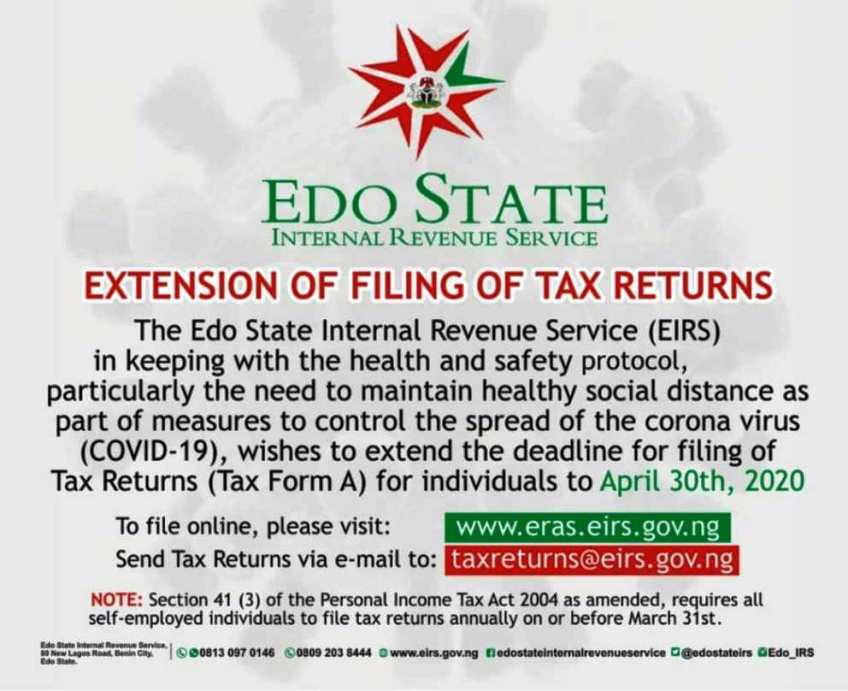The Edo State Internal Revenue Service has held an orientation with Ministries, Departments and Agencies (MDAs) operating in the state to update them on government’s plan to run a unified tax system that is robust, sustainable and reliable.
Addressing participants at the EIRS Sunny Okundia Training School on the processes and procedures of collection of government’s approved rates, Chief OseniElamah, Executive Chairman, EIRS, stated that for effective feedback on revenue generation, all MDAs operating within Edo State must start making use of government’s approved revenue and treasury receipts for all Internally Revenue Generation (IGR) transactions from February 2017, to make for a proper data collection system which is sustainable and transparent.
Giving credence to Governor Godwin Obaseki’s ban on forms of illegal revenue collection, and the use of consultants and agents in the process, he informed participants that if the EIRS was to meet its N30 billion target, towards the actualization of the 2017 Budget of Consolidation and Prosperity”, then there was need to be proactive and plugging loopholes.
The EIRS Chief maintained that tax payment were authorized by law, however stated that MDAs would no longer collect direct cash from members of the public instead, officials of the EIRS would be on hand to collect taxes, levies and rates through the use of Point of Sales (PoS) Machines and electronic wallets scratch cards whose codes could be used on PoS machines and direct payments to banks for which receipts must be issued.
Answering questions from participants based on challenges and peculiarities of their individual MDAs enumerated sources and procedures, Chief Elamah informed “We don’t operate in silos anymore but a unified system through which strong institutions are built.”
He noted that the statistics of about 170, 000 people who pay taxes of the estimated 4.2. Million population of Edo State was made possible due to the Tax Identification Number (TIN) registration project which enables the tax authority to identify and capture taxpayers’ biometric data and prevents the issue of double taxation owing to the universal nature of the TIN number and transaction.

